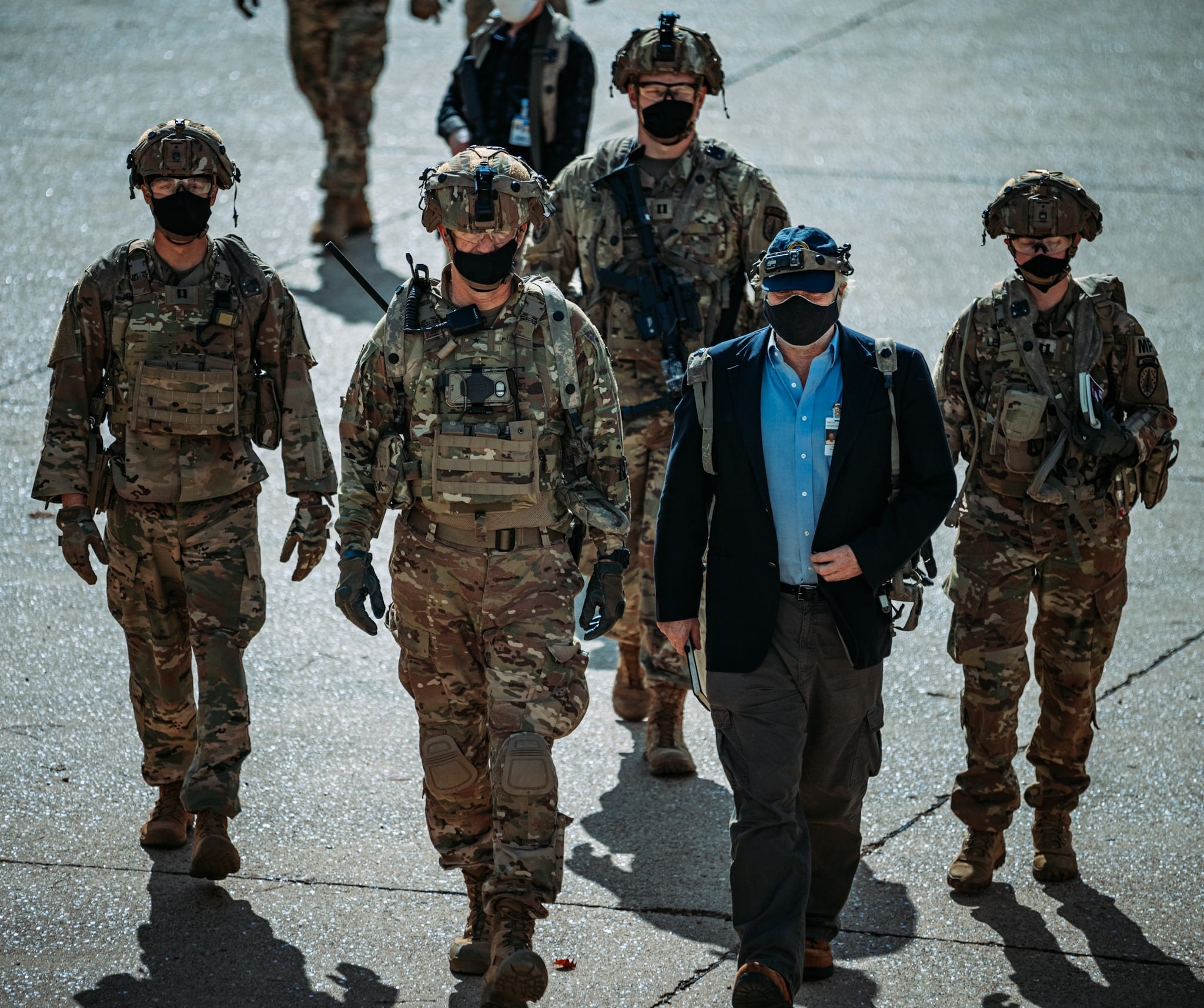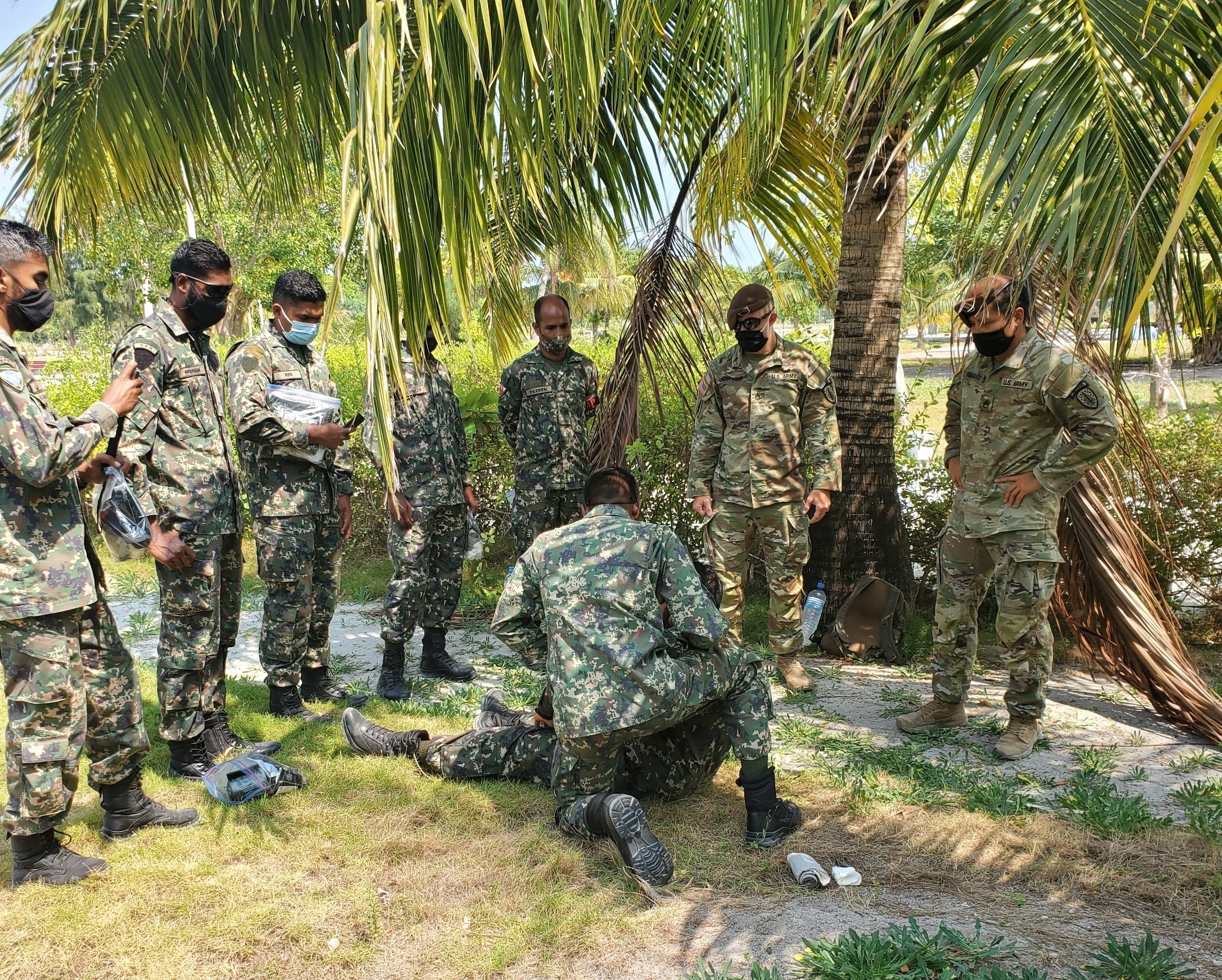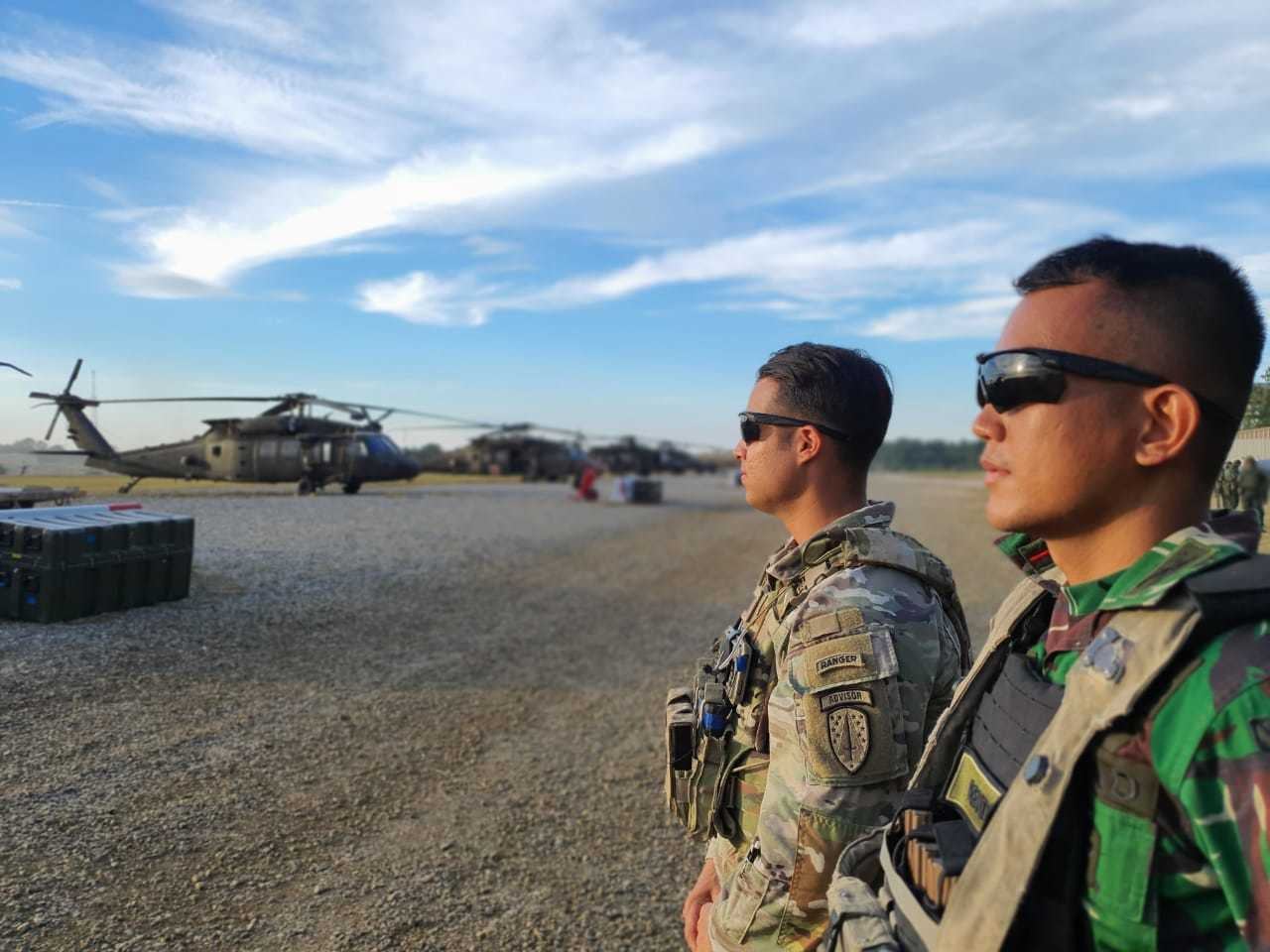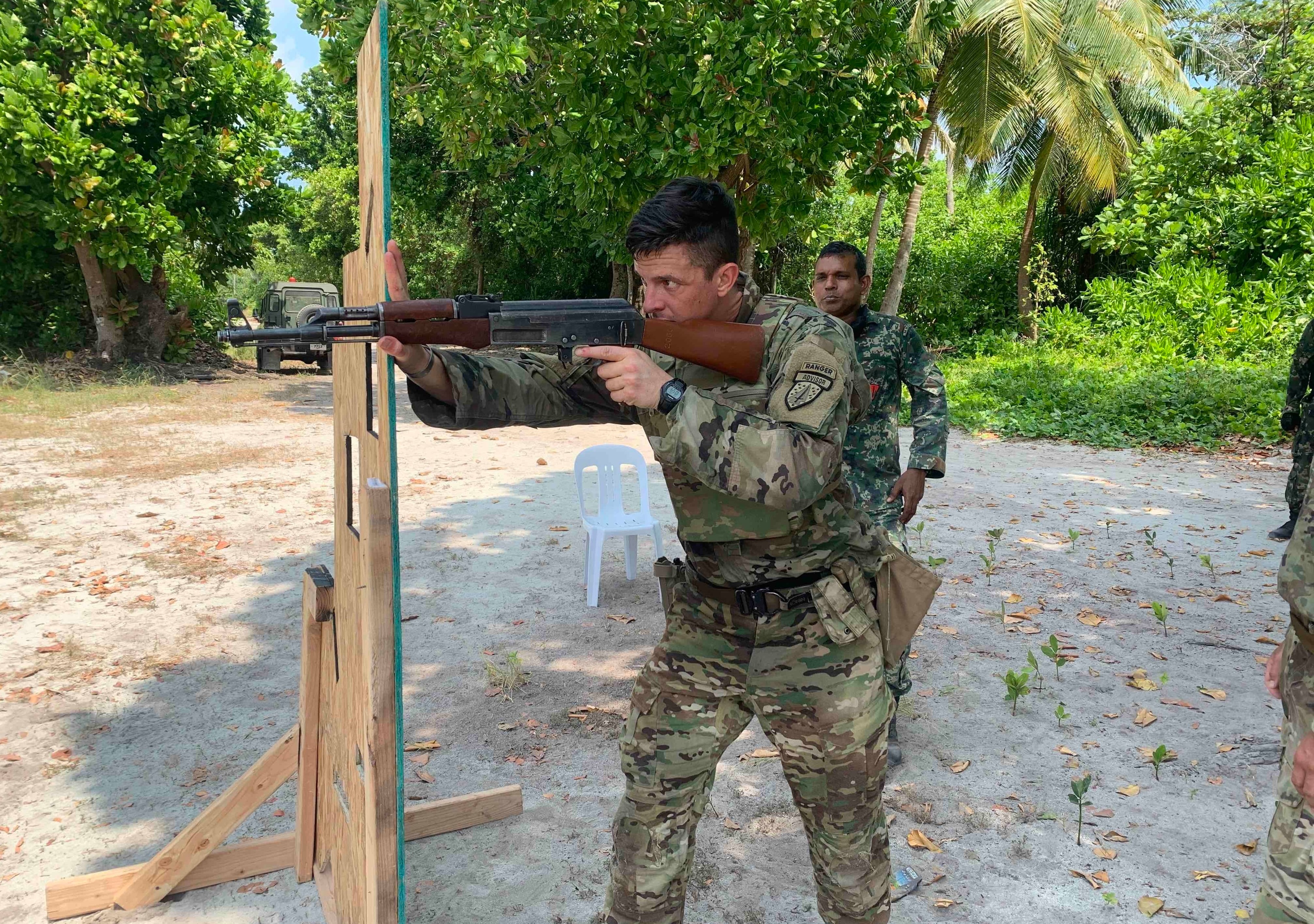A small cohort of Army advisers traded their dreary winter at Joint Base Lewis-McChord in Washington state for a sun-soaked visit to the Maldives this February and March.
The Americans were sent to the Maldives to train its growing security forces, the first of what are expected to be regular rotations to an archipelago that is of strategic interest to India and the United States on one side, and China on the other.
Twelve-soldier teams from 5th Security Force Assistance Brigade fanned out across the Indo-Pacific this year. Leaders at the 5th SFAB want one-third of their roughly 820 soldiers deployed at all times to mentor foreign militaries in the region — where U.S. and Chinese interests are often at odds.
Officials at the 5th SFAB have been tight-lipped about the countries where their advisers are working, only acknowledging a few, like Indonesia, thus far. Army advising missions overlap with those of U.S. embassies and foreign diplomats, necessitating discretion until all parties are ready to announce, officials have said.
The Maldives are prepared to talk, though. The small nation’s defense chief, Maj. Gen. Abdulla Shamaal, tweeted about the 5th SFAB rotation March 25, saying that year-long discussions centered around increasing training engagements “have become a reality.”
Capt. Matthew Orders, a 5th SFAB team leader, told Army Times by telephone Wednesday that his advisers have trained with a wide range of troops across the Maldives National Defense Force, including the presidential guard, the Maldives College of Defense and Security Studies, the marines, the coast guard and an integrated headquarters.
But the Maldives have a small military, numbering just 2,500 personnel across all services, according to CIA figures.
“They’re continuing to expand their capabilities, continuing to grow because of the political turbulence in the country over the past couple of decades. They have a relatively new structure to their military with new leadership, with new visions,” Orders said.
RELATED

“The coast guard, you know, the things they do are kind of out of the wheelhouse of the 5th SFAB, to be honest,” Orders added. “But I think the marine corps is probably where we can help focus a lot of our efforts, because they are the ones that will help respond to any crises that pop up in the country. They’re more so focused on domestic security and domestic-related issues.”
The United States and the Maldives signed a new defense cooperation agreement Sept. 10 in Philadelphia, another hint at the importance placed on the Maldives’ thousands of islands that stretch across critical shipping lanes in the Indian Ocean.

For Orders’ team, partnering with the Maldivians has meant instructing them on small-unit tactics, combat medical care and marksmanship.
The Americans also introduced locals to the RQ-20 Puma, a hand-launched drone that could give the Maldivian forces an ability to launch search and rescue missions at night, Orders noted.
“We [worked with] quite a large variety of MNDF service members from across different branches and special sections,” Orders said. “The next time we interact with MNDF, we’re going to try to target that a little bit more with ‘Train the Trainer’ programs in specific locations.”
RELATED

Orders said this first rotation gave the 5th SFAB a better idea of where exactly they should send advisers when they come back this summer.
The next team of advisers will likely be split between helping Maldivian forces run noncommissioned officer academies and sending personnel to a new combat medic course started in the capital of Malé.
The SFAB team leader and an assistant team leader could then rotate around the country, meeting with different area commands.
Orders’ team has been in the Maldives since Feb. 11 and closed out the training engagement at the end of March. Four to six weeks is the sweet spot, he said.
“It’s really hard for them to generate enough combat power to support our training,” he added. “That’s just my opinion based on what I saw. … We’ll see once we enter negotiations for the next rotation how long we can stay here. But I think four to six weeks is about right.”
Kyle Rempfer was an editor and reporter who has covered combat operations, criminal cases, foreign military assistance and training accidents. Before entering journalism, Kyle served in U.S. Air Force Special Tactics and deployed in 2014 to Paktika Province, Afghanistan, and Baghdad, Iraq.









